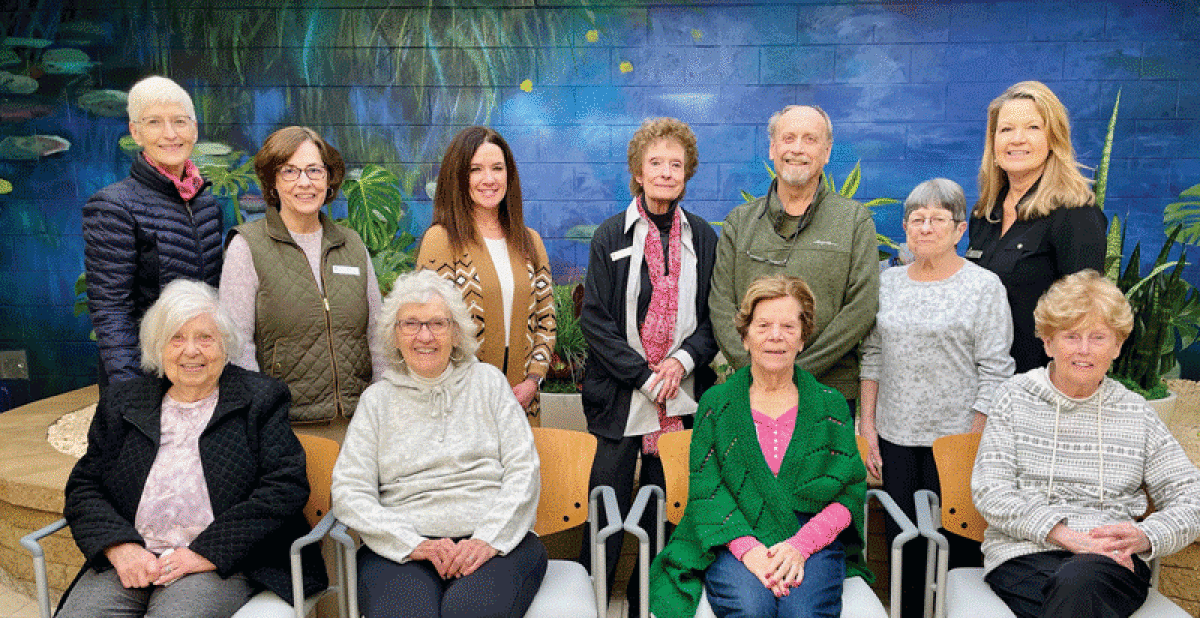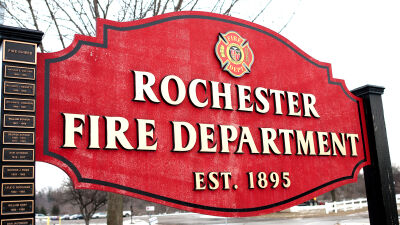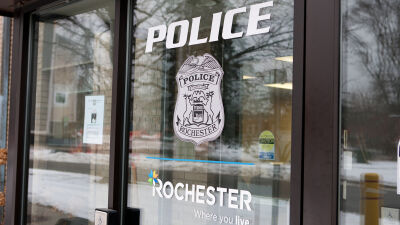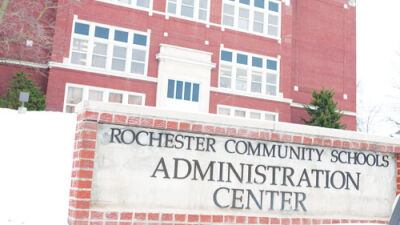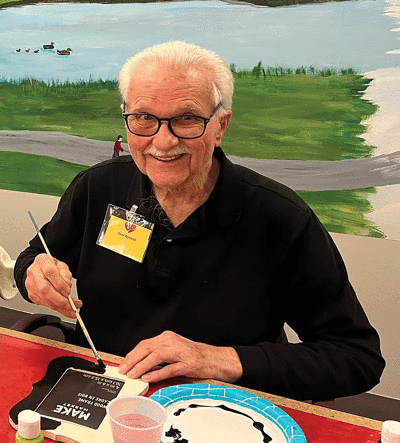
The Adult Day Service Program offers a variety of entertainment for clients, including the arts.
Photo provided by the OPC
ROCHESTER — Rochester is one of three cities in the state to join the Dementia Friendly America program, committing to support people living with dementia and their care partners.
Sarah Berry, of Corewell Health, said the Michigan population is aging, and fast.
“We know that Michigan and Oakland County have a high percentage of their population over the age of 55, and over the age of 65, and an extended life expectancy,” she said.
The state has more than 2 million residents over the age of 60 — representing about 25% of the state’s population. Approximately 37% of the state’s population is 50 and older.
Dementia, Berry said, is quite common in older adults.
In Michigan, an estimated 190,000 people currently live with Alzheimer’s disease, the most common form of dementia, and that number is expected to climb with the growing older adult population.
“The demographic shift … presents an opportunity for communities that are prepared, well-designed, age-friendly communities that foster economic growth and happier, healthier residents of all ages,” said Renee Cortright, the executive director of the Older Persons’ Commission.
The goal of the Dementia Friendly Rochester program is to provide support to those living with this disease, their families and their care partners in the community.
In the Rochester area, Berry said, approximately 15% of elderly people report having difficulty remembering.
“The reason that’s important is there’s a large population of people who are undiagnosed, for multiple reasons, who may not even know they are living with that health issue,” she explained.
The city recently formed a committee — including representatives from the city, the Rochester Fire Department, the Rochester Police Department, Ascension Health, Corewell Health, the Older Persons’ Commission, the Rochester Downtown Development Authority, the Rochester Hills Public Library, Cedarbrook Senior Living of Rochester, Sunrise Senior Living, American House Senior Living and Comfort Keepers Senior Care Services — that meets monthly to track dementia-friendly initiatives.
Some initiatives include offering social engagement opportunities, educational events and support through collaborations with local care partners and families.
For example, for many years the OPC has been offering The Adult Day Service, Alzheimer’s/Dementia Caregivers Support Group that meets 2-3 p.m. the second Tuesday of the month; and the Senior Resource Program, which offers information and referrals to resources on all aspects of aging. More recently, the library and the OPC have each started offering a memory cafe for people with memory challenges and their care partners to socialize in a safe space. Programs include the creative arts, such as music, dance, poetry, visual arts and art education. The end goal, Cortright said, is to offer an opportunity to engage these individuals, resulting in positive mental health benefits and reduction in loneliness.
The Fire Department is also in the process of working on a program to obtain locator bracelets for the elderly.
Sometime in the future, Berry said, the committee plans to hold a free, one-hour live presentation — with a virtual option — for all businesses interested in becoming dementia-friendly.
“Restaurants, retail stores, banks, coffee shops — once they complete the education and make the changes — if they need to do so — will receive a decal that they can put on their window that says they are a dementia-friendly business,” Berry said.
The committee is currently working to secure an Age Friendly Community designation, as well as nonprofit status to allow fundraising and donations to keep initiatives going.
An age-friendly community, Cortright explained, is a liveable community for all ages.
“One of the things that’s so amazing about coming together with both the dementia- and the age-friendly (designations) is to take those steps to integrate the work of both movements. They can reduce duplicated efforts, avoid confusion, save resources and allow each movement to strengthen and support each other, and that’s truly what I believe this will do,” she said.
The city, she noted, is already an age-friendly community in many different ways. It’s just hoping to earn the official designation.
“We’re just really putting a lot of emphasis on these different domains — transportation, outdoor spaces, housing, participation, communication, information, social participation, respect, social inclusion and community support. We have so much — all of that — in place. It’s just taking that in and getting the input from community members,” she said.
The Dementia Friendly America network aims to foster villages, towns, cities and counties that are informed, safe and respectful of individuals living with dementia, their families and caregivers, and provide supportive options that foster quality of life.
“Once we get Age Friendly, we would be the first city in Michigan to have both (designations),” added Berry.
Dementia Friendly Rochester is also in the process of creating a website, www.friendlyrochester.org, which is currently under construction.
 Publication select ▼
Publication select ▼